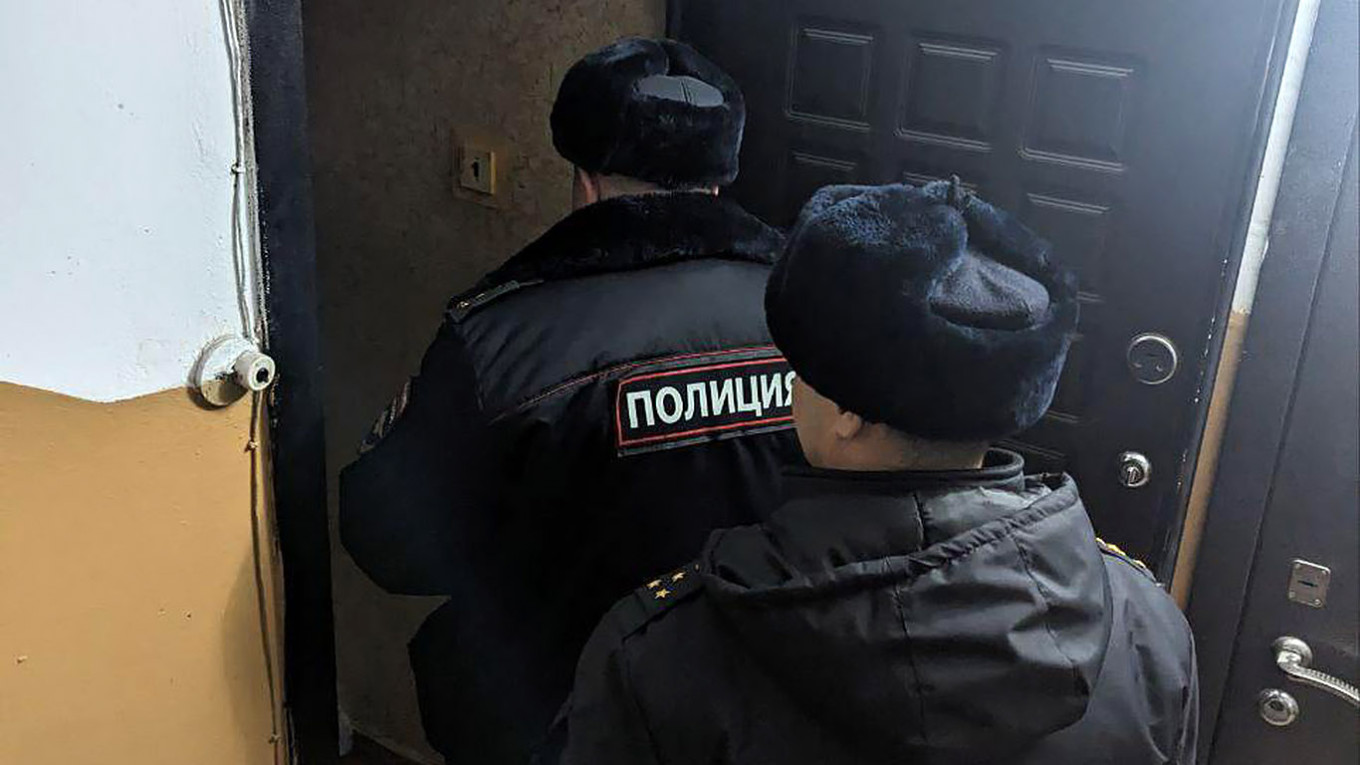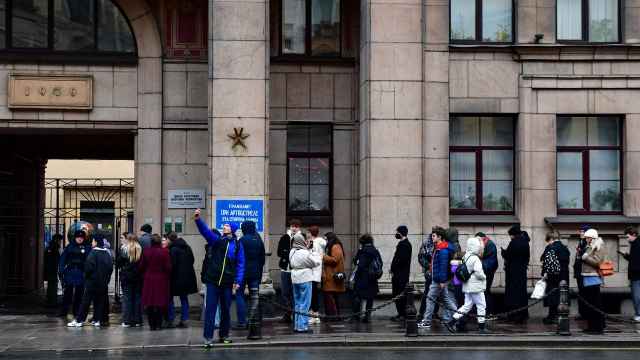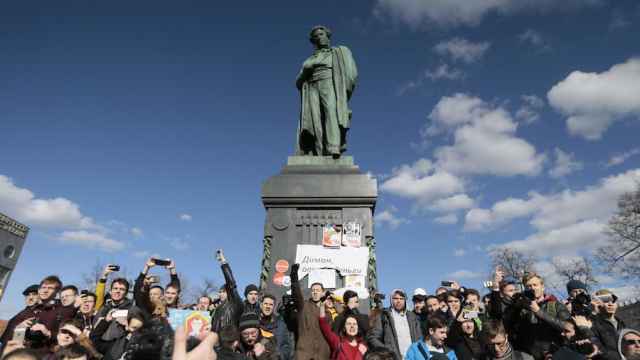Russian law enforcement authorities carried out searches at the homes of four former opposition politicians in Moscow on suspicion that they have ties to an “undesirable” organization, state media reported Wednesday.
The former municipal deputies were named “founders and co-chairs” of an exiled association of anti-war local politicians called Deputies of Peaceful Russia, according to the news agency TASS.
Federal prosecutors banned the Berlin-based Deputies of Peaceful Russia last August on accusations that its founders are allegedly funded by Western intelligence agencies to carry out anti-Russian activities.
Last month, the Moscow prosecutor’s office launched criminal proceedings against former municipal deputies Igor Glek, Ilya Azar, Yelena Rusakova and Sergei Vlasov over their involvement with the “undesirable” association.
According to TASS, investigators on Wednesday searched the apartments of Glek and Azar, as well as former municipal deputies Galina Filchenko and Nodari Khananashvili.
The human rights watchdog OVD-Info reported that the searches were carried out at the homes of Azar’s mother and Glek’s relatives. Khananshvili’s wife Polina Khananashvili was taken to a police station for questioning, according to OVD-Info.
Filchenko was released after questioning and named a witness in the criminal case, her lawyer Oskar Cherdzhiyev said.
Deputies of Peaceful Russia was established in the fall of 2023 with the aim of working toward ending Russia’s war against Ukraine and representing the interests of exiled Russians.
The “undesirable” label effectively bans an organization from operating inside Russia and exposes its employees and affiliates to potential criminal prosecution.
Russia has used the “undesirable” designation to target opposition groups, foreign organizations and media outlets, including The Moscow Times, since introducing the law in 2015.
A Message from The Moscow Times:
Dear readers,
We are facing unprecedented challenges. Russia's Prosecutor General's Office has designated The Moscow Times as an "undesirable" organization, criminalizing our work and putting our staff at risk of prosecution. This follows our earlier unjust labeling as a "foreign agent."
These actions are direct attempts to silence independent journalism in Russia. The authorities claim our work "discredits the decisions of the Russian leadership." We see things differently: we strive to provide accurate, unbiased reporting on Russia.
We, the journalists of The Moscow Times, refuse to be silenced. But to continue our work, we need your help.
Your support, no matter how small, makes a world of difference. If you can, please support us monthly starting from just $2. It's quick to set up, and every contribution makes a significant impact.
By supporting The Moscow Times, you're defending open, independent journalism in the face of repression. Thank you for standing with us.
Remind me later.






